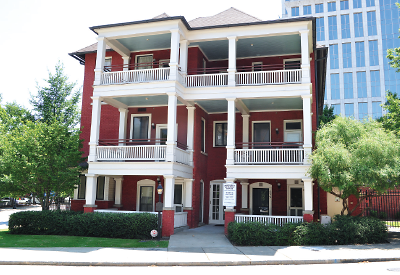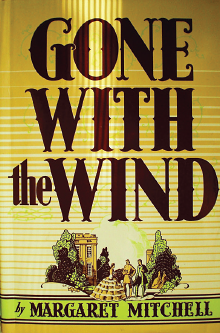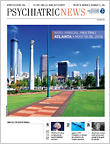If you are looking for inspiration to begin or complete your future award-winning piece of literary work, consider taking a trip to the very spot where Margaret Mitchell penned the Pulitzer Prize–winning novel Gone With the Wind.
The Mitchell House and Museum is a three-story, Tudor Revival building that was built in 1899 as a single-family home before being divided into a 10-unit apartment building. It was there that Mitchell and her second husband lived from 1925 to 1932 and where she began writing Gone With the Wind after an injury forced her to leave her position at the Atlanta Journal Sunday Magazine.
The couple’s apartment wasn’t fancy—Mitchell called it “the dump”—but it remains the only interior space of the restored building that has been preserved as an apartment.
Visitors of the Mitchell House can view Mitchell’s apartment furnished in a manner similar to that in which she and her husband had furnished it—for example, with a 1923 typewriter and blue ruffled curtains on the bedroom window. Visitors can even see the famous leaded glass window that Mitchell looked out while writing her famous novel.
Guided tours of the Margaret Mitchell House and Museum are offered daily and include a visit to “the dump” as well as exhibitions of Mitchell’s early life and the transformation of her novel into a movie.
The exhibition “Margaret Mitchell: A Passion for Character” interprets the life of the author through stories, quotes, and photographs. Here, visitors can read through works that Mitchell wrote as a child, learn of her work as a reporter for the Atlanta Journal Sunday Magazine, and discover the impact that the popularity of Gone With the Wind had on her life.
The exhibition “The Making of a Film Legend: Gone With the Wind” details the transformation of the novel into what became a film classic. The exhibition features facsimiles of storyboards and other movie materials, as well as the original movie poster of Scarlett O’Hara and the original doorway from Tara (the O’Hara family mansion) from the movie set.
The Margaret Mitchell House is open from 10 a.m. to 5:30 p.m. Monday through Saturday and from noon to 5:30 p.m. on Sunday. Tours are typically offered every half hour beginning at 10:30 a.m. and ending at 4:30 p.m.
You can reserve tickets to tour the museum only on-site. Due to limited availability, the museum recommends an early arrival for all visitors to secure a space on a tour. ■
For more information, click
here.


